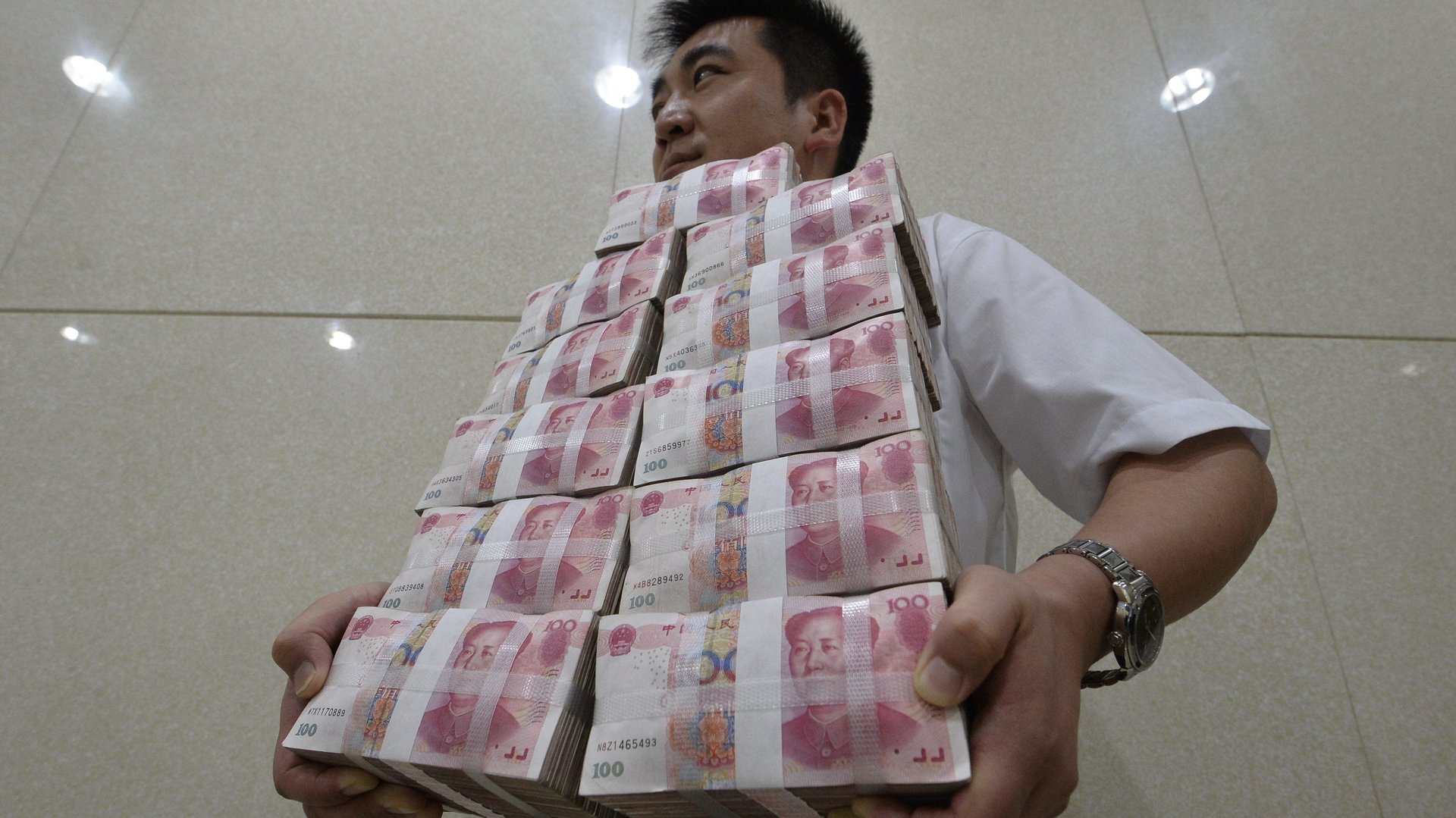China’s central bank thinks digital currency can do one thing cash can’t
China’s central bank, the People’s Bank of China (PBoC), has been working to develop its own digital currency. Having recently completed a trial run of its cryptocurrency based on blockchain technology, the PBoC is moving closer to becoming one of the first central banks to issue digital money.


China’s central bank, the People’s Bank of China (PBoC), has been working to develop its own digital currency. Having recently completed a trial run of its cryptocurrency based on blockchain technology, the PBoC is moving closer to becoming one of the first central banks to issue digital money.
The obvious benefits of such a push include lower operating costs, greater efficiency, and better control of illicit money flows, reasons that have previously been cited by the Chinese central bank.
But the central bank appears to be more ambitious than that. Speaking at a high-level forum yesterday (March 26), PBoC governor Zhou Xiaochuan gave one more reason for the bank’s digital-money drive: negative interest rates.
“If everyone is holding cash, negative interest rates become useless,” Zhou was cited as saying (link in Chinese) at the Boao Forum, an annual conference in Hainan province. “With the popularity of digital currency, cash usage will drop significantly… During extreme deflation, negative interest rates are perhaps more useful than dropping money from helicopters.“
It appears to be the first time that the Chinese central bank has directly linked issuing digital currency to its monetary policies, and in particular to negative interest rates. Negative rates, which charge banks to hold money, have in recent years been used by Japan, Sweden, Switzerland, and Denmark to boost growth and raise inflation, to varying degrees (paywall) of success. China, on the other hand, is in effect increasing rates as its economy is still revving up.
But Chinese policymakers are apparently preparing for the worst. Zhou made it clear during his speech that the Chinese central bank would not rule out the use of negative rates if deflation occurs in China. But in such a scenario, even with a negative rate policy in effect, people may still want to hold on to physical cash rather than spend money. Zhou’s thinking is that until paper money is mostly replaced by digital money, that problem will not be resolved.
Even as the PBoC is turning to blockchain technology to create its own digital money, it is stepping up oversight of Chinese bitcoin exchanges, presumably amid concerns about capital outflows and money laundering. As a result, major trading platforms have imposed halts on withdrawals and stopped margin trading, among other self-imposed restrictions, in an attempt to appease the regulator.